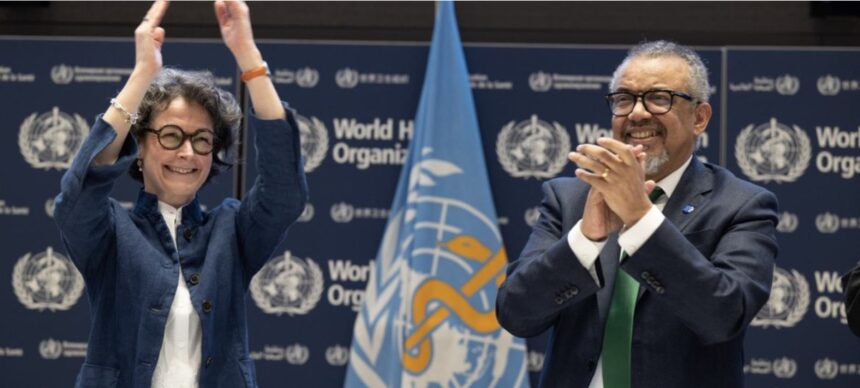In a landmark decision aimed at enhancing coordination, monitoring, and vaccine sharing in future pandemics, the World Health Organisation (WHO) on Tuesday approved a historic Pandemic Agreement.
The agreement was finalized on the second day of the WHO’s annual meeting in Geneva, during a time when the UN agency faces mounting challenges, including funding cuts from the United States and uncertainties surrounding its broader mission to safeguard global health.
The move marks the culmination of more than three years of negotiations, initiated in the wake of the devastating impacts of the COVID-19 pandemic, with the shared goal of making the world safer and more equitable in its response to future global health threats.
The agreement was officially adopted during the 78th World Health Assembly.
“The world is safer today thanks to the leadership, collaboration and commitment of our Member States to adopt the historic WHO Pandemic Agreement,” said WHO Director-General Dr. Tedros Adhanom Ghebreyesus.
“The Agreement is a victory for public health, science, and multilateral action. It ensures that we, collectively, can better protect the world from future pandemic threats. It is also a recognition by the international community that our citizens, societies and economies must not be left vulnerable to again suffer losses like those endured during COVID-19.”
Equity and Preparedness at the Core
A key feature of the treaty is its commitment to ensuring equitable access to pandemic-related health tools. Countries that share critical virus samples will be guaranteed a fair share of any diagnostic tests, medications, or vaccines developed as a result. The agreement also allocates up to 20% of these products to WHO for broader distribution.
Struggles Amid Funding Cuts
The announcement comes as WHO grapples with significant funding challenges, particularly following a reduction in financial support from the United States. Director-General Ghebreyesus acknowledged the difficult financial climate during his remarks at the opening of the Assembly.
“Our current situation is difficult. It should not be a surprise to any of us,” he stated.
In addition to US funding cuts, WHO is facing declining contributions from traditional Western donors, many of whom are diverting funds toward defence and away from humanitarian aid.
A New Financial Path Forward
To address these challenges and reduce its reliance on voluntary contributions, which currently make up more than half of WHO’s budget, member states are expected to approve a 20% increase in annual dues, known as assessed contributions.
This and other key reforms on the agenda for the nine-day World Health Assembly aim to strengthen the agency’s financial resilience and bolster global preparedness for health emergencies.
By Najat Adamu






